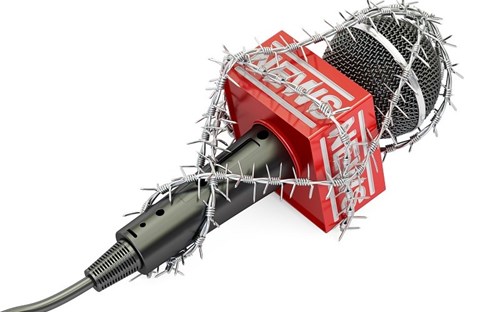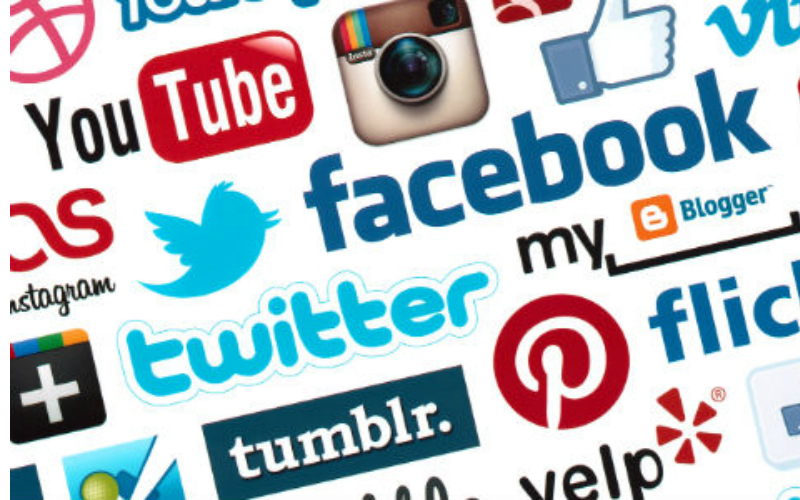Former President Donald Trump, the Republican nominee seeking a second White House term, got his campaign message through to more than a million people last night on X, the social media platform formerly known as Twitter. About 16 million users moved in and out of the conversation at various times, according to X.
Trump and X CEO Elon Musk – who has endorsed Trump for president – took turns complimenting one another in civilized conversation that doesn’t always define Trump media events. But the entire exchange was delayed, its presence threatened by a distributed denial-of-service attack, according to Musk who apologized to X users.
“My apologies for the late start. We unfortunately had a massive distributed denial-of-service attack against our servers,” he said at the outset of the conversation.
X’s production capabilities were “saturated” with interference, Musk explained. “As this massive attack illustrates, there’s a lot of opposition to people just hearing what President Trump has to say,” he added.
A few hours after the two-hour interview, Musk admitted that X committed what he called "unforced errors" and "mistakes" that helped delay the interview. "But good work by the X team fending off the attacks and fixing our mistakes," he said.
Attack comes weeks after CrowdStrike chaos
Jake Denton, a tech policy research associate for The Heritage Foundation, said on American Family Radio Tuesday that the DDoS highlights the need for greater security for cyber infrastructure nationwide.
Airports, financial institutions, healthcare systems, government agencies and more were brought to their knees by a failure of CrowdStrike, a leading cybersecurity provider, in July. A botched update by CrowdStrike sent Windows-based computers into an endless reboot cycle, frustrating users with the “blue screens of death” on displays worldwide.

These types of attacks, according to Denton, will become more common until society begins to take cybersecurity more seriously.
“What our first Frontline support is supposed to be, a company like CrowdStrike completely fails at their job, and it takes almost the entire planet offline for the better part of two days. As we rocket towards Election Day, we all have to be very cognizant of the fact that we're walking on thin ice – and that at any given moment, a cyberattack, whether it be a DDoS attack or something more nefarious, could take us offline whether it be banking or just a social media site,” Denton told show host Jenna Ellis.
Denton contends the timing of the DDoS, which is basically an effort to occupy server capacity to disrupt service, was intentional.
“What was really clever about this is obviously you’re anticipating a surge in users. Then you couple it with this, which basically just floods the servers. It handicaps your ability to provide service.”
Musk, Trump faced EU censorship attack too
The DDoS was the second hurdle the Musk-Trump conversation faced Monday night. Musk brushed away the first: a letter from the European Union, warning Musk to be on guard against offensive content that could come from the former president.
 Belgian Thierry Breton, the head of the EU’s digital concerns, reminded Musk that the interview would be accessed by around 100 million X users in the EU and pointed out that under EU laws X was required to see that all “proportionate and effective mitigation measures are put in place regarding the amplification of harmful content,” The Daily Mail reported.
Belgian Thierry Breton, the head of the EU’s digital concerns, reminded Musk that the interview would be accessed by around 100 million X users in the EU and pointed out that under EU laws X was required to see that all “proportionate and effective mitigation measures are put in place regarding the amplification of harmful content,” The Daily Mail reported.
This was especially important against a backdrop of recent disorder and social unrest. Immigration tensions have risen in the wake of a stabbing in Southport that left three young girls dead. The Associated Press reported that much of the unrest was the result of the false name of a suspect circulating on social media.
Musk, a staunch supporter of free speech on his platform, used vulgar language in his response to Breton.
“In the early days of social media there was an obsession over what people were allowed to say. The algorithms still generally worked in a fair manner. You could speak your mind and people would see it,” Denton explained. “Slowly but surely the content moderation rolled out and governments got involved. Then companies took deals with governments and structures like the EU to really limit the reach of these people. So, you can still say these things, but no one will see it.”
WaPo on the EU's side?
The EU wasn't the only one concerned about the content of the Musk-Trump interview. Prior to the interview, Washington Post reporter Cleve Wootson, Jr. asked White House press secretary Karine Jean-Pierre the following:
Wootson: "I think that misinformation on Twitter [now X] is not just a campaign issue. It's an America issue. What role does the White House or the president have in sort of stopping that or stopping the spread of that or sort of intervening in that?"
As Denton points out, Musk hasn’t played the censorship game suggested by both the EU and WaPo reporter Wootson.
“The content moderation isn’t the same as the rest of the pack, and now there’s an obsession over really controlling the content again. They don’t like the idea that Elon isn’t conforming to their standards,” Denton elaborated.
Trump campaign responds to EU threat
In light of Breton’s letter to Musk, the Trump campaign accused the EU of trying to “meddle” in U.S. politics and fired back.
“The European Union should mind their own business instead of trying to meddle in the U.S. presidential election. Let us be very clear: the European Union is an enemy of free speech and has no authority of any kind to dictate how we campaign,” campaign spokesman Steven Cheung said in a statement.
The EU released its “Digital Services Act” in 2022. Key objectives included efforts to increase transparency and accountability and to restrict various types of speech it deemed illegal are harmful.
Denton said the letter was “an open-ended threat basically trying to discourage Musk from even hosting” Trump on his platform.
“It’s very interesting that it comes at this time that the EU has been trying to kind of cozy up to a potential second Trump administration. Now here they are trying to take a shot at him,” Denton said.







